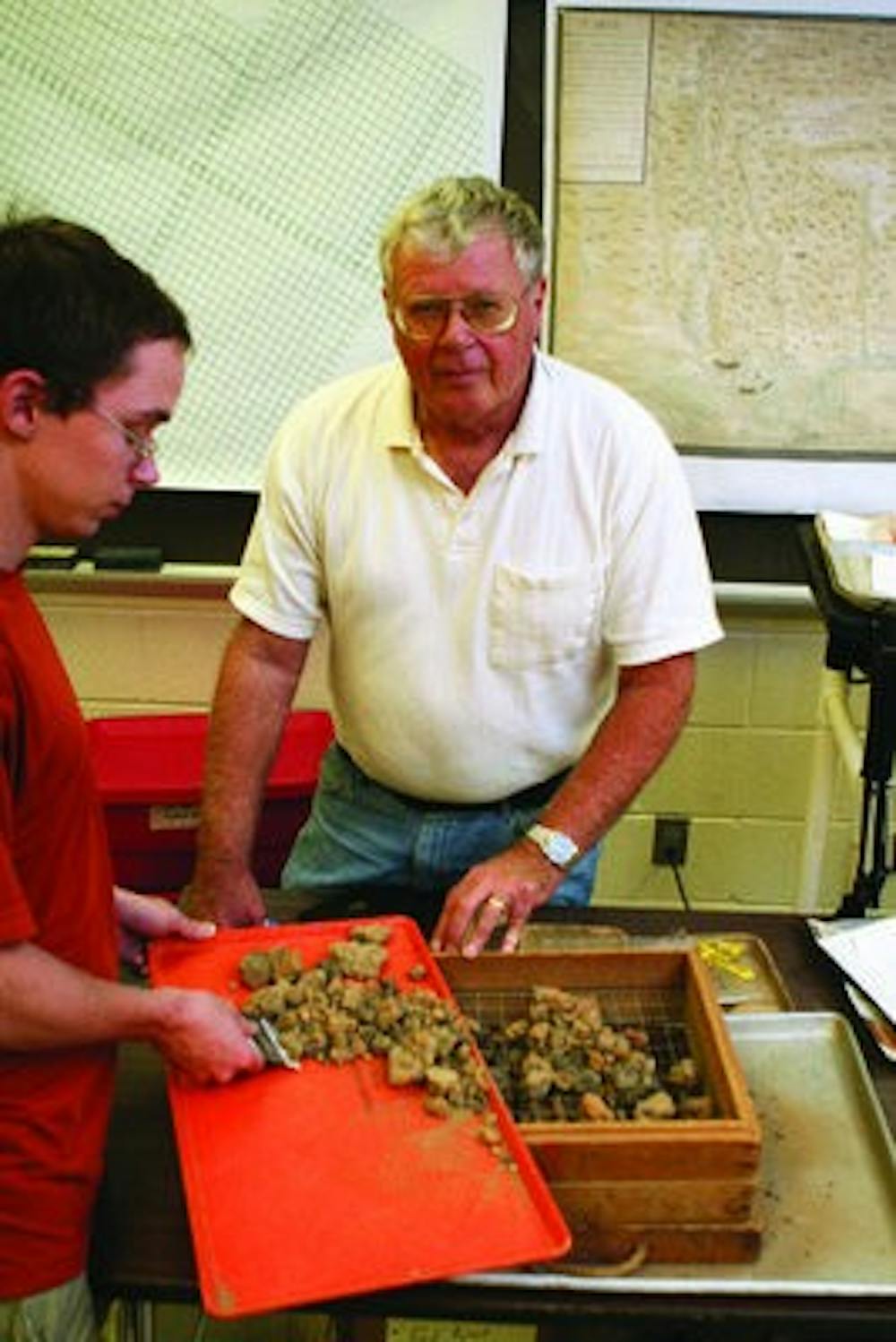Archaeologist and professor of anthropology John Cottier has inspired his students to think--and dig\0xAD-- outside of the box.
"I'd like to think that I challenge people to think holistically and to think anthropologically," Cottier said. "By thinking anthropologically, we look for patterns and then we try to explain those patterns. So that way, there's a different way of looking at a wide range of things."
During the time Cottier has worked as an archaeologist in Alabama, he has been awarded $4 million in grants from various entities, including the University and the National Science Foundation, to work on multiple projects at local, state and federal levels.
"We've done a lot of digs here in Alabama," Cottier said. "We've excavated at sites of slave cabins, historic American Indians and pre-historic American Indians--really just a wide range of archaeological sites."
Cottier said he has also worked at various forts around Alabama, including Fort Conde in Mobile, Fort Morgan in Gulf Shores and primarily Fort Mitchell in Russell County.
Cottier said he and his team are now working hard analyzing the results of an excavation at a dig site just outside of the casinos in Atmore, Ala., in hopes of learning about the Poarch band of Creek Indians.
"This Poarch Creek excavation is finished," said Monica Cox, recent Auburn graduate in anthropology. "We're working on the analysis part of our investigation now."
Cottier said he and his co-workers have been working at this particular site for 10 years excavating artifacts from the Creek civilization.
"The Poarch band of the Creek Indians have given us $1 million on their own," Cottier said. "They are very interested in and happy with the work we have done so far. They have been very gracious with funding some of our research at this site."
Despite his travels, Cottier said he is an Auburn Plainsman, through and through.
"I grew up in Auburn," Cottier said. "I attended undergraduate school here and then went on to the University of Alabama to get my master's degree and then the University of Missouri for my doctorate."
Cottier has been teaching at Auburn for 32 years. He has also taught at both of his other two alma maters.
"He's very passionate about what he's teaching," Cox said. "He drives you to want to learn more and be better at whatever it is you do, whether you're an anthropology major or not."
Hamilton Bryant, senior in anthropology, said Cottier inspires his students to be skeptical and analytical, despite one's inclinations.
"He encourages us to not just accept what people say," Bryant said. "There's a lot of misinformation out there, which plays a big part in the value of anthropology. Dr. Cottier has taught us to approach our work with a holistic nature."
Cox said working alongside her mentor has been an invaluable experience that inspires her to pursue her own dreams without reservation.
"He's extremely encouraging," Cox said. "He never gives up, and that keeps us going."
Do you like this story? The Plainsman doesn't accept money from tuition or student fees, and we don't charge a subscription fee. But you can donate to support The Plainsman.





